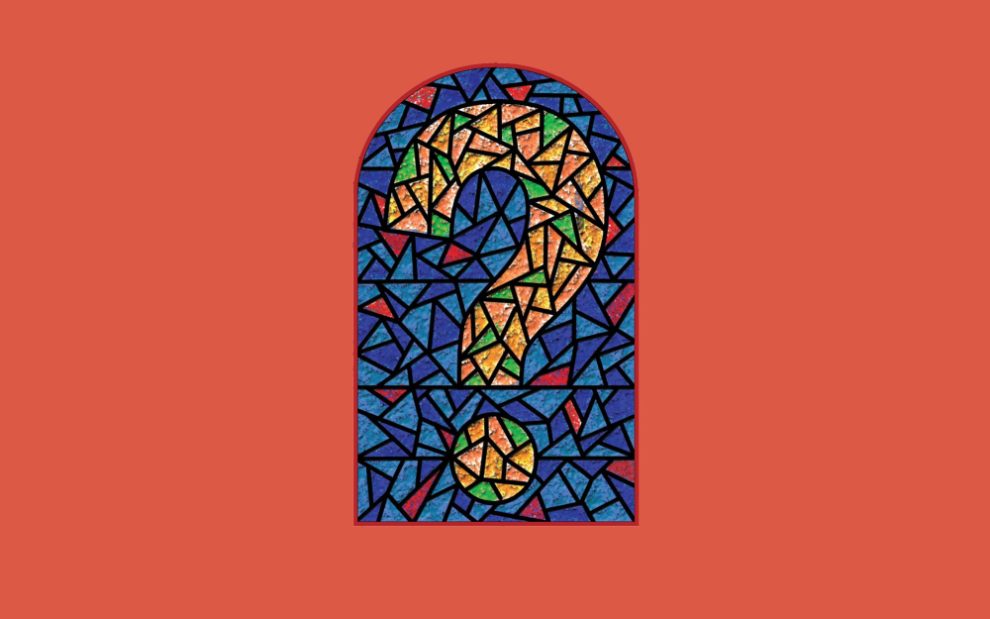Listen on: Apple | Google | Spotify
Different Christian denominations have different ways of interpreting and honoring Jesus’ actions and words at the Last Supper. The Last Supper itself, according to the synoptic gospels, was a Passover meal and would have been celebrated according to specific rubrics within the Jewish tradition. Today, denominational groups have developed their own rubrics, some more specific than others. Some churches celebrate communion casually and infrequently, whereas for others this ritual is at the heart of their religious celebration.
In the Roman Catholic tradition, communion is central to churchgoing. Since the first or second centuries, Catholics have referred to the entire communion service itself—not just the bread and wine—as eucharist, which derives from the Greek eucharistēsas, meaning “giving thanks.”
The Roman Catholic church has developed specific guidelines about how the communion bread, typically referred to as a host, is made. These small round paper-like wafers don’t look a lot like bread as we ordinarily experience it and are clearly not made in the manner we might bake a loaf of French bread or challah. So who makes them? What kind of rules do they have to follow? Why don’t Catholics use regular bread they could bake themselves? And what about people who can’t eat wheat—are they unable to partake of communion in a Catholic church or are gluten-free options available?
On today’s episode of Glad You Asked, hosts Emily Sanna and Rebecca Bratten Weiss talk to Sister Mary Catherine of the cloistered community of Passionist Nuns in Kentucky, whose community makes wafers for communion. Sister Mary Catherine explains the church’s traditions and guidelines for making communion hosts as well as the logistics and mechanics involved in the process.
You can learn more about this traditions and regulations regarding communion hosts in these links:
- “Where do hosts come from?” by Victoria M. Tufano
- “The story behind a communion host,” by Catholic Digest
- “Norms for the Distribution and Reception of Holy Communion under Both Kinds in the Dioceses of the United States of America”
- Monastery of the Sacred Passion, Erlanger, KY
- The Making of the Communion Bread for Holy Communion
Glad You Asked is sponsored by the Claretian Missionaries.














Add comment